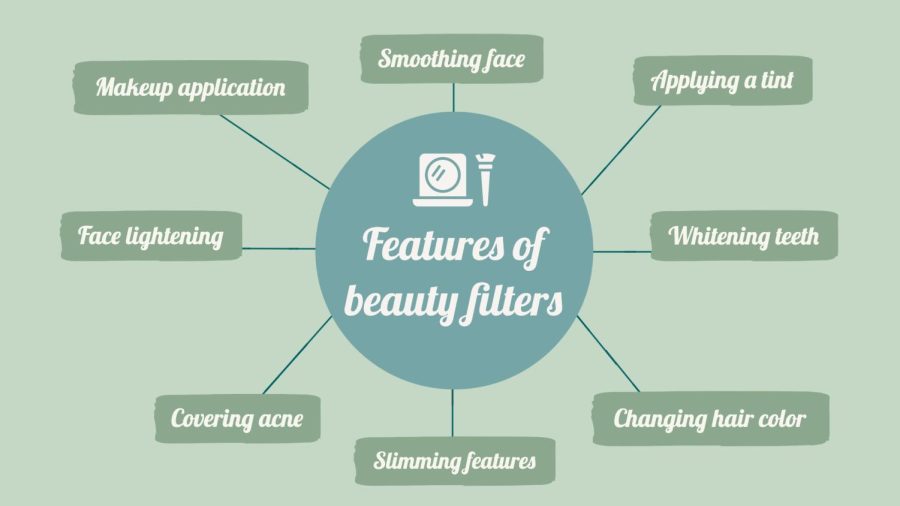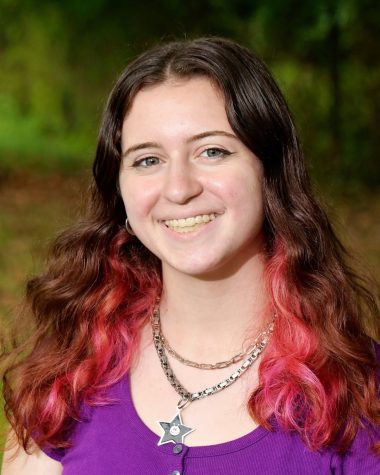Opinion: Beauty filters reinforce negative beauty standards
Beauty filters use a variety of features that touch up the user’s appearance in a realistic way. Graphic by Ellie Fischman, LT
April 6, 2022
Scrolling through any social media platform, it has become routine for me to see people’s altered pictures and videos, whether they are of our friends or celebrities. These alters and filters promote a toxic culture in which people are afraid to show their authentic selves for fear of not living up to unrealistic beauty standards.
We usually don’t even think twice about these edited photos, and not giving them that second thought is what allows the harmful culture around social media to thrive.
The use and normalization of beauty filters on social media has provided yet another way to push unrealistic beauty standards and make people feel insecure about the way they look. These filters have done little if any good in comparison to the world of negativity they have introduced.
By now, countless discussions have debated the positives and negatives of social media, and all beauty filters do is enhance the negative aspects. They reshape people’s perceptions of themselves and push them to believe they should look a certain way all of the time.
For example, in an article with TRTWORLD, 19-year-old Berra Demir said, “I don’t find my normal self beautiful” and explained that she will no longer take a picture without a filter. This is most likely because she has only felt acceptable with the filter, and no longer feels she can be secure with herself without it.
On TikTok, discussion about the harms of beauty filters is prevalent. These filters have become extremely popular, but many creators have spoken up about their issues with them.
The main issue of concern is about the skin lightening and face altering features many of these filters include. These force people of color into not using the filter. The only other option would be to accept conforming to these Eurocentric traits, which is detrimental because of the blatant colorism and racism it endorses. These so-called beauty filters imply that Eurocentric and lighter-skinned people are more attractive.
My biggest grievance with these filters is that they seem to have no purpose other than pushing harmful stereotypes on young people. I believe that these filters fuel a cycle of image issues that we should all be working towards ending, rather than encouraging.








